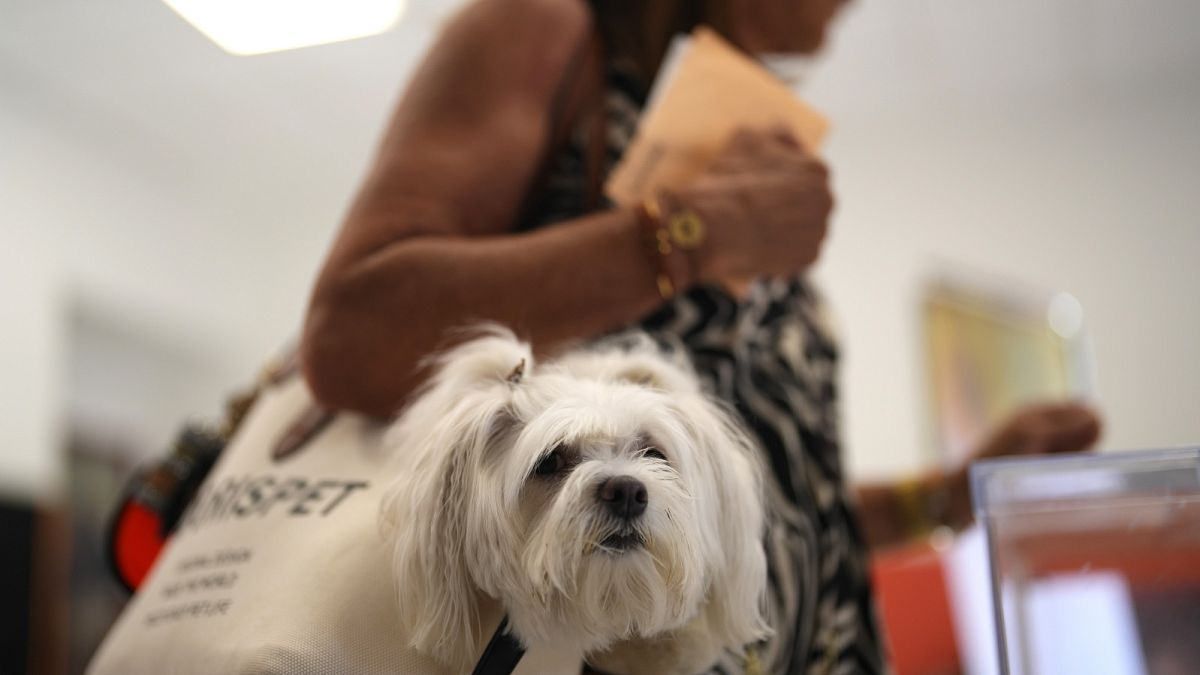Police in Spain now have powers to arrest people for leaving their pets alone following the adoption of a new animal welfare law that came into force last week.
The law targets those who mistreat animals by bringing in fines of up to €200,000.
However, the pioneering legislation has left out fighting bulls, hunting dogs and dolphins which perform in marine parks.
The apparent contradictions within this legislation have been excused by animal rights groups which say the country’s first specific animal rights legislation is an achievement.
In a sign that attitudes towards animals are changing in Spain, the law is proof that the issue is now at the centre of political debate.
It bans the buying of pets in shops and online but gives shops a grace period to find homes for these pets. From now onwards, pets will only be sold from registered breeders and be allowed into restaurants and bars when previously they have been tied up outside.
Wild animals like lions or tigers have been banned from circuses with the owners of these animals given six months to comply. Marine parks may still use dolphins until these mammals die.
Bullfights, regarded by some Spaniards as an integral part of the country’s culture but seen by others as cruel, have not been included in the law.
A proposal to include hunting dogs was also left out by the ruling Socialist government after it sparked an outcry from hunters and conservatives in rural areas.
'An achievement for the animal rights movement'
About 29 million animals are kept as pets in Spain, the vast majority of them dogs, according to government statistics. However, around 300,000 are abandoned each year and about one-third of those are put down.
Mandatory pet insurance and registration as well as training for pet owners is one of the novelties of the law.
However, those requirements and some legal aspects were delayed because Spain has no effective government. July's inconclusive elections left the country with a hung parliament.
If acting Socialist Prime Minister Pedro Sanchez manages to form a coalition government, these measures may be enacted.
AnimaNaturalis, an animal rights group, campaigned hard for hunting dogs to be included in the new law but were defeated.
Every February, after the hunting season ends, hundreds of dogs are abandoned or even hanged if they are not of use to their owners, campaigners claim.
“In terms of the hunting dogs, it is a battle which we have lost unfortunately for the hunting dogs. The owners of these dogs did not want them to be registered. But despite everything it is good news that all dogs should be registered,” Aida Gascon, of Animanaturalis, told Euronews.
“The mere existence of this pioneering legislation at a state level is an achievement for the animal rights movement which has managed to put animal rights at the centre of the political agenda permanently.”
Animal rights arouses passions in Spain with some in rural areas saying hunting wild boar, foxes, deer and other animals is an essential part of their lifestyle.
Sergio García Torres, the director general of animal rights in the Spanish social rights ministry, said he had received threats and had personal security.
He said “sooner or later” hunting dogs would be included in future legislation on animal rights.
However, hunters vowed to fight any attempt to include under the same legislation animals which are used for work along with domestic pets.
“This law represents a direct threat to the viability of hunting in Spain,” Manuel Gallardo, of the Royal Spanish Hunting Federation, which represents 337,000 hunters, told Euronews.
The EU's focus on livestock
Across Europe legislation on animal welfare varies but the main area for political debate centres on the treatment of farm – not domestic – animals.
The European Commission is reconsidering new welfare measures because of the cost of food inflation, according to a recent report by the Financial Times.
Brussels was planning a ban on measures like the use of livestock cages, the killing of day-old chicks and the sale and production of fur.
But concerns that the proposed changes could push up food costs, which have risen sharply after the Russian invasion of Ukraine, have led the Commission to reconsider the plans.
Despite the possible back-track, the EU has taken strides in recent years towards animal welfare measures.
In 2007, the bloc banned veal crates and in 2012, it implemented a ban on tiny cages for egg-laying hens.
The EU has also implemented a partial ban on cages for female breeding pigs, allowing pork producers to lock them in small crates, which have been criticised by animal rights groups.
Individual EU countries have introduced their own bans on cages for pigs or hens.
However, Germany and Denmark are the only agricultural heavyweights among them.
Germany will introduce a ban on cages from 2025 while Denmark’s near-total ban on cages for pigs starts from 2035.
France, another major agricultural country, has introduced a partial ban on the sale of eggs from caged hens.
